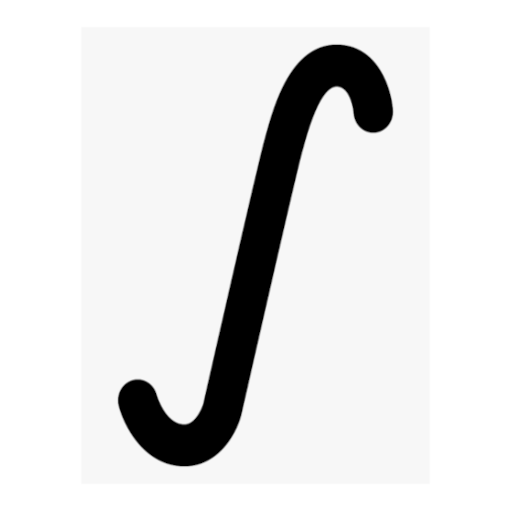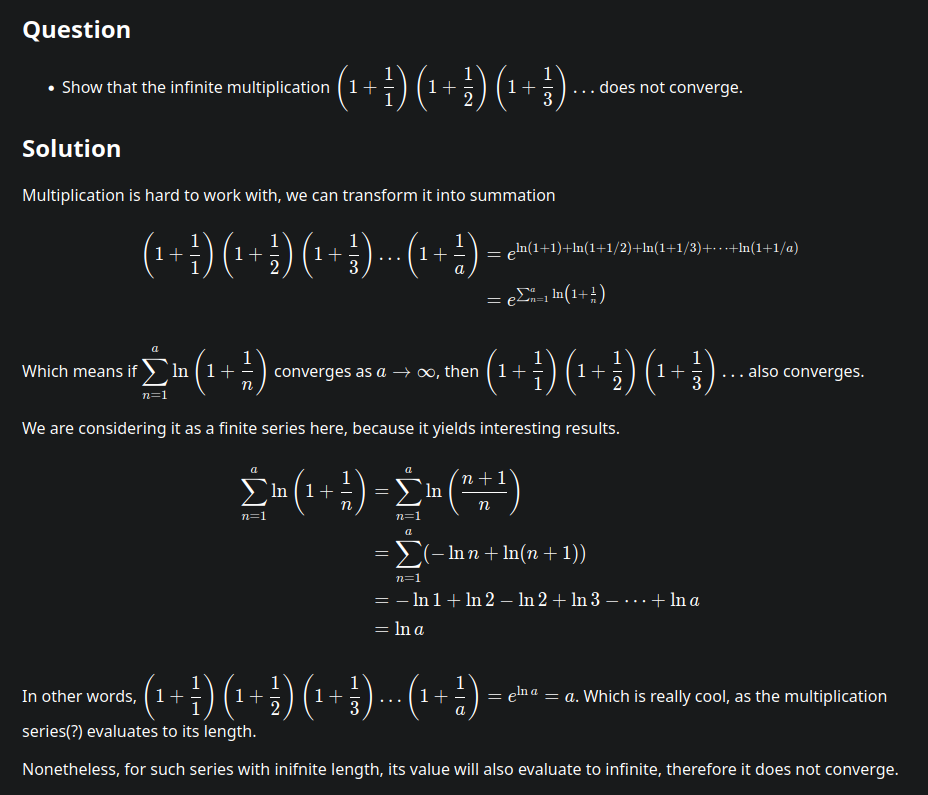- Show that the infinite multiplication
(1+1/1)(1+1/2)(1+1/3)...does not converge.
solution
The terms can be rewritten as:
(2/1) * (3/2) * (4/3) * … * ((n+1)/n) * …
Each numerator will cancel with the next denominator. In total everything cancels, so the answer is the empty product, 1.
…Wait…
Uhm, ignore that. Rather, consider the products we get when multiplying. We get: 2/1. 6/2. 24/6. Etc. That is, we have:
Π (n = 1 to k) (n+1)/n = (k+1)! / k! = (k+1)k!/k! = k+1
k+1 clearly goes to infinity as k → ∞, so our product diverges to infinity.
solution
Isn’t this already the result of your 1st formula? As the denominator of the last fraction you wrote down,
(n+1)/n, cancels out with the counter of the one right before,n/(n-1), which you didn’t write down. Thus the whole product up to the nth term reads after cancellation of neighbouring counters and denominator pairs(n+1)/1 →∞ when n→∞.reply
Yes - I mostly left the first part in for the humor (it was legitimately my first stab at the problem), but it gives the same result, just in a way that’s a little harder (to me, at least) to see. The cancellation is unbalanced: Each numerator cancels with the next denominator, which necessarily brings with it the next numerator - you’ve always got the next numerator in line, as-is, after any number of canceled pairs. So while everything cancels out in the limit, the product up to n equals n+1, and so the limit of the product is ∞.
Hint:
spoiler
e
Solution:
spoiler
zkfcfbzr solved it
i put everything into ln because i was scared of multiplication
comment
Was wondering about that hint - read it after my solution then tried coming up with another that made the product like (1 + 1/n)^n, but the best I was able to manage was proving that the product is larger than e - an impressive feat since it takes a whopping two terms to get that large… Thought it might be something with writing the product like lim (n → ∞) Π (k = 1 to n) (1 + (n/k)/n), but was never able to figure out a way to do anything with that either.
i added the solution to the post, i didnt see the multiplication before someone mentioned it, but yeah if we put it to the power of e it will telescope again, which is clearly the main character of this sub at this point (jk)



